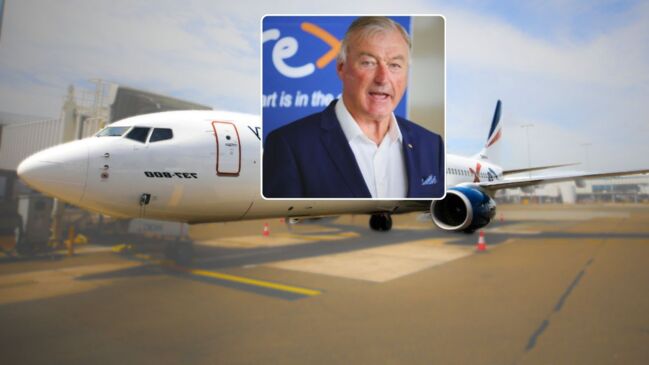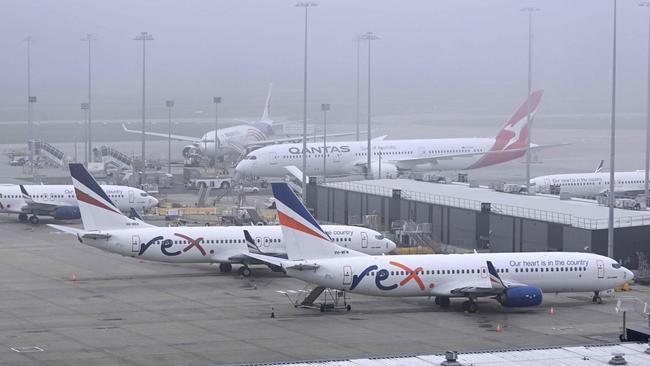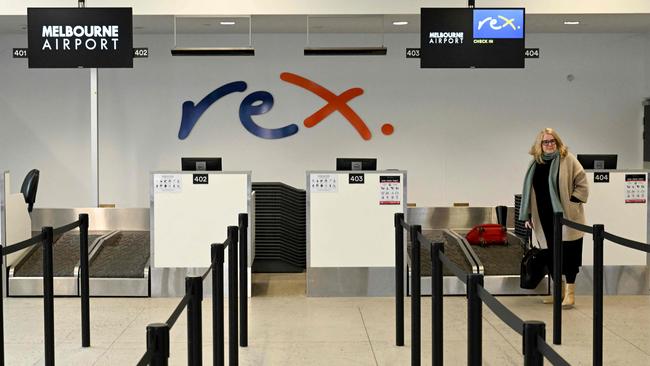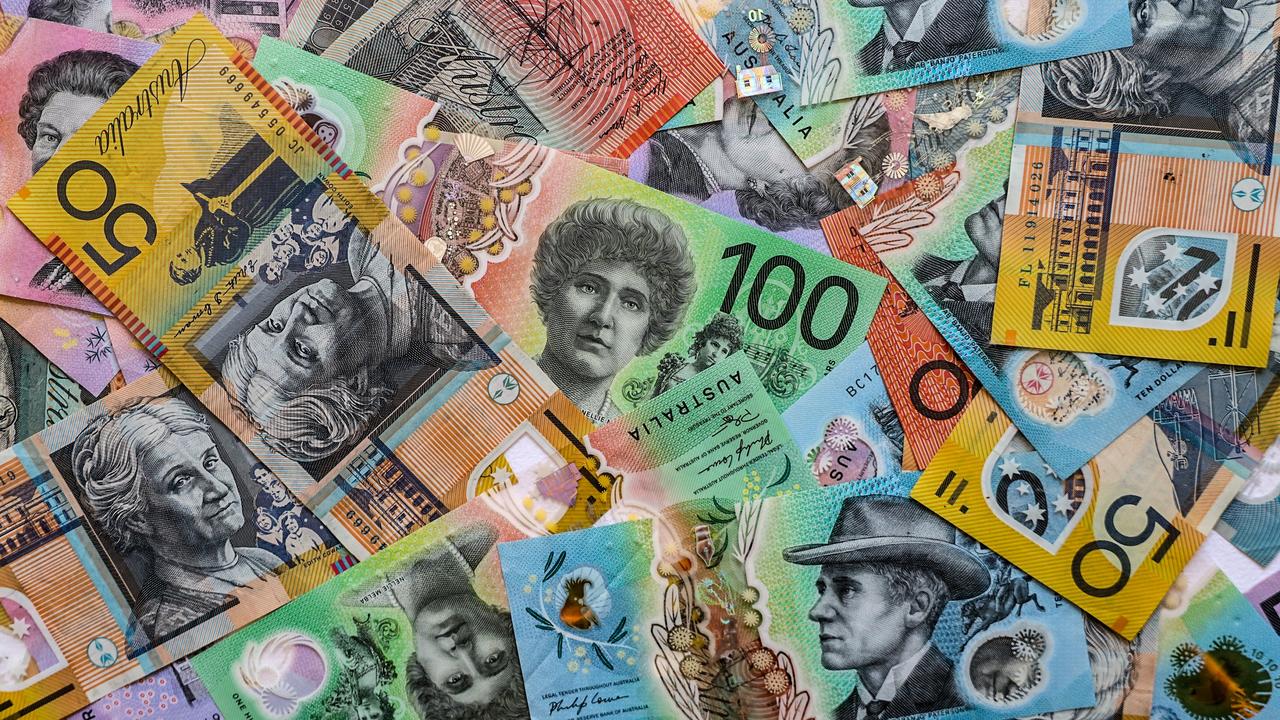The government’s Qantas and Virgin focus ultimately killed Rex
The broader consequences of Australia losing its third biggest airline cannot be understated.

National
Don't miss out on the headlines from National. Followed categories will be added to My News.
OPINION
The collapse of Rex spells is bad news for passengers and the broader airline industry.
It would seem we just can’t break the aviation duopoly of Qantas and Virgin.
Jetstar doesn’t count given it is owned by Qantas.
Not even the third-biggest airline in the country could survive taking on the big two in the metropolitan domestic market despite giving it a red-hot go.
It was a market that seemed to be there for the taking. Qantas’ service has tanked since Covid and no longer justifies the premium one pays for their flights.
The only good thing they’ve done is to start the free booze at midday instead of 4pm, as I recently discovered after flying with them for the first time in yonks.
That joy quickly disappeared when I could not get a person on the phone to help locate a piece of lost property and my emails to the lost property line never received a reply.
Rex, on the other hand, has the best service of any domestic airline – as anyone who has flown with them can attest.

Their metropolitan flights were always on time and never cancelled. Unlike other low-cost carriers, they provided a small snack to passengers. The air hostesses, many of whom are now out of a job, were the friendliest and most helpful you’d come across.
They were such a close team that if you mentioned one to another on a different flight they generally knew who you were talking about.
I last year wrote to Rex chairman and former Nationals MP John Sharp to compliment him on the level of service, the friendliness of the staff and to express my support for the airline’s goal of breaking up the duopoly.
That gratitude was clearly shared within the company because, on a flight about a week later, a hostess came to my seat to thank me for my kind remarks and offer me a drink.
You don’t get that kind of service and appreciation anywhere these days, let alone from an airline.
Their aim was to provide country hospitality and that’s exactly what they did.
And most importantly, their prices were competitive – particularly compared to Qantas.
Despite all of this, the attempt to crack the market ultimately broke the airline.
And that’s not just down to Rex. It’s largely caused by the federal government seemingly running a cartel to protect the big two.

The provision of slots – the right and space to operate your aircraft – at Sydney Airport is governed by federal legislation.
Existing players, such as Qantas and Virgin, are given priority for those slots and essentially guaranteed to keep them for the next year as long as they are used.
Former Productivity Commissioner Peter Harris wrote a review of demand management at Sydney Airport in 2021 that recommended slots be further opened to new carriers.
But that never happened, locking Rex out of the opportunity to fly at peak times and constraining them to mid-mornings and late evenings.
How is an airline meant to take on the market when they’re not allowed to fly when people want to fly?
The concept of taking on Qantas and Virgin is a fallacy because, under the current rules, an airline such as Rex is effectively banned from doing so.
That means higher fares and less competition.
Rex tried its best but it was ultimately failed by the government – and, by extension, the government failed the consumer.
Originally published as The government’s Qantas and Virgin focus ultimately killed Rex





